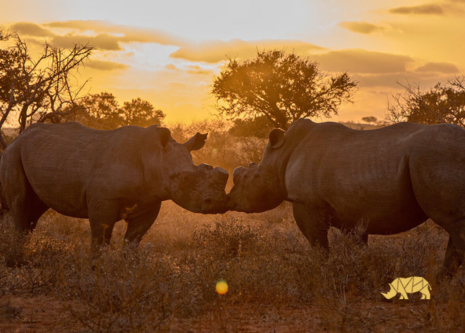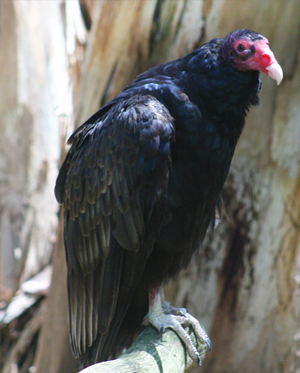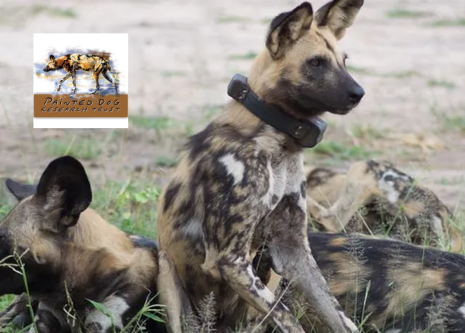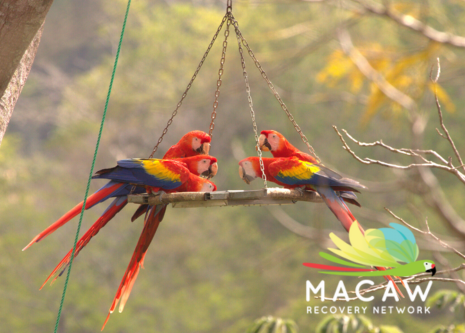
- VisitSupport Happy HollowDONATE TODAYExploreSupport Happy HollowDONATE TODAYLearnSupport Happy HollowDONATE TODAYSupport
-
Today's Hours: 10:00 am to 4:00 pm
Happy Hollow Blog
BIG HOPE FROM SMALL CHANGE
March 7, 2023

Did you know that your visit to Happy Hollow Park & Zoo helps worldwide conservation efforts? Since 2015, Happy Hollow’s Quarters for Conservation program has devoted 25 cents of every ticket sold and $1 of every membership purchased to the conservation of wildlife and their habitats. In partnership with Happy Hollow Foundation, the Quarters for Conservation Grant supports critical field conservation and research projects that protect and preserve wildlife and wild places on our planet. In 2022, Happy Hollow proudly supported four organizations with a total of $82,180 in awarded grants. Read on to learn about the work these organizations are doing.
Council of Contributors- Rhinos
In South Africa, the Council of Contributors has been working to protect rhinos since 2017. With a large and dispersed population, and heightened poaching pressure, new and increased anti-poaching efforts are needed. Rhino populations across South Africa’s state–led national parks have declined by nearly 75% in the last 10 years, with a 13% increase in rhino poaching. The Council of Contributors focuses on three main areas: Rhino orphanages, anti-poaching units & equipment, and adult rhino rescue & rapid response. Their Quarters for Conservation grant-funded project provides partial funding for a lightweight anti-poaching aircraft known as a Bat Hawk, which provides far-reaching “eyes in the sky” impact, especially for remote areas. The Bat Hawk purchase and assembly was completed in February 2023, and it now graces the skies of the Limpopo province of South Africa, deterring syndicates and protecting rhinos and other wildlife by association. The Council of Contributors is dedicated to supporting organizations on the front line of the poaching crises with the single-minded goal of saving the rhino from extinction.

Wildlife ACT Fund- Vultures
Also receiving a Quarters for Conservation grant, The Wildlife ACT Fund is on a mission to save endangered wildlife and wild places from extinction in Africa. Their Quarters for Conservation grant-funded project aims to safeguard and stabilize the endangered vulture populations of KwaZulu-Natal province, South Africa. Vultures serve a critical role in the ecosystem and are greatly underestimated and sometimes even feared. African vultures face a variety of threats, and population numbers of all species across their entire range have decreased drastically over the last decade. Wildlife ACT Fund’s project will contribute to a better understanding of vulture movements, habits, habitats, breeding success and threats that will enable securing specific areas they heavily rely on to focus conservation efforts.

Painted Dog Research Trust- Painted Dogs
In Zimbabwe, the Painted Dog Research Trust has been collecting alarming data regarding wildlife-vehicle collisions since 2013. Their research indicates that 4,000-8,000 vertebrates are victims of wildlife traffic collisions annually on a 70 km stretch of the public access road that runs through a wildlife corridor area within the Kavango- Zambezi Conservation area. Such roads are debilitating to the endangered painted dogs’ population as well as other wildlife. Their Quarters for Conservation grant-funded project will develop mitigation strategies to reduce wildlife-vehicle collisions by targeting driver behavior, integrating road monitoring systems, and understanding hotspots where traffic overlaps negatively with wildlife activity.

Macaw Recovery Network-Parrots
The final 2022 grantee is the Macaw Recovery Network, a global leader in the conservation of neotropical parrot populations based in Costa Rica. In the 1950s, deforestation and poaching drove Scarlet Macaws to extinction in parts of Costa Rica, but Macaw Recovery Network is helping to restore strong populations that continue to thrive today. Their holistic approach to conservation involves bird breeding and release to help recover populations at risk of local or global extinction. Currently, great green macaw and yellow-naped Amazon parrot populations are being prioritized due to recent reclassification from endangered to critically endangered. With an outreach and law enforcement campaign, the Macaw Recovery Network is increasing awareness to prevent poaching, provide habitat protection, and undertake active population management. Their Quarters for Conservation grant-funded project provides veterinary equipment at their breeding facility as well as a mobile aviary to aid in re-release efforts.

2023 Applications Open Now!
Happy Hollow is grateful to the guests that enable us to provide these grants, as well as the organizations doing the work to protect wildlife around the world. Applications for the 2023 grant cycle are open now, with applications accepted through Sunday, April 2. Learn more about the grant requirements and submit an application on the Quarters for Conservation grant page.